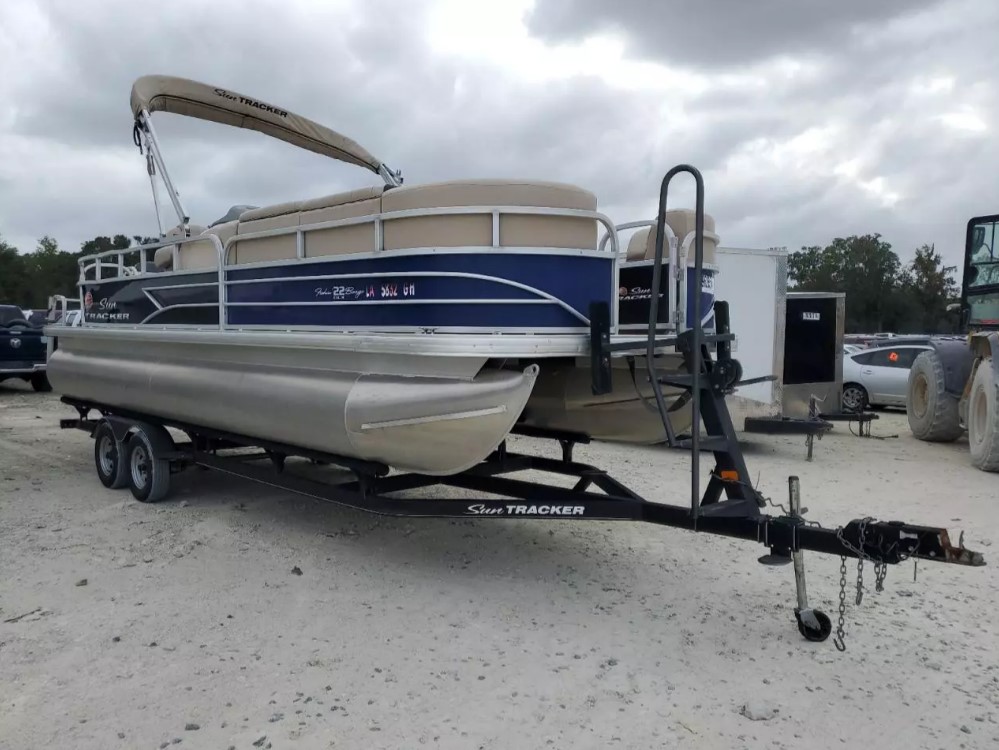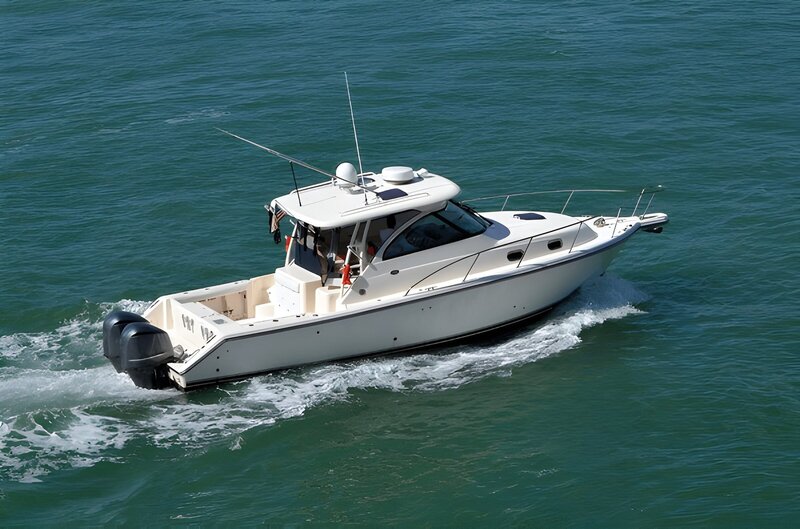Sustainability is now becoming a concern in almost all sectors of an industry. The boating sector is no exception to this. Although the pleasure of owning and using a boat is timeless, some responsibility of minimizing the impact on the environment also comes with it. Among such measures, often ignored but significant contributions to sustainable boating practices include scrap yards for boats.
In this blog, we’ll explore how boat scrap yards contribute to sustainable boating practices, their impact on the environment, and how they intersect with auctions such as the WA surplus boat auction, a hub for repurposing surplus and salvaged boats.
Page Contents
The Environmental Impact of Boat Disposal
Boats are made of various materials. These include fiberglass to metals, wood, and plastic. Each has a different sort of environmental impact. When boats are disposed of without following proper procedures, the results could be disastrous:
- Waterway Pollution: sunk or dumped boats leak out poisonous materials including oil, fuel, and chemicals into the marine ecosystems
- Non-Biodegradable Waste: Fiberglass is one of the primary elements utilized for making boats, which decays after thousands of years.
- Valuable Resources Waste: Boats cannot be recycled; therefore, people are deprived of aluminum, stainless steel, among other salvageable components.
Boat junkyards solve all these above problems by developing an alternative to irresponsible dumping in an environmentally friendly manner.
How Boat Scrap Yards Promote Sustainability
1. Recycling Materials
Boat scrap yards specialize in salvage work of reusable materials from decommissioned vessels. For instance:
- Metals: Aluminum, steel, and other metals extracted for recycling.
- Fiberglass: This is difficult to recycle, but some yards collaborate with specialized processes to use fiberglass in new products.
- Electronics and Parts: Salvageable parts such as engines, propellers, and navigation equipment are collected and resold.
This helps decrease the need for newly extracted materials, which saves natural resources and reduces the depletion of energy.
2. Landfill Waste Prevention
Through the breaking down and recycling of boats, boat scrap yards keep these large, bulky vessels from cluttering landfills. Considering that retired boats are growing in volume due to age and tighter environmental regulations, this is very important.
3. Promote Upcycling
The imaginative boat owner and business may find parts or material to create upcycling projects from scrap yards. Old boats can be transformed into furniture, home decor, or even a new vessel. This creative reuse contributes to reducing waste levels and inspires sustainable behaviors in the community.
4. Empowering Economies at the Local Level
Boat scrap yards stimulate the economy because they create employment and supply cheap parts in a boat repair yard. This is particularly advantageous for the small-time boat owners since cost-effective solutions form the only means by which they can be able to sustain their craft.
Relationship Between Boat Scrap Yards and Surplus Auctions
A boat scrap yard is usually affiliated with the surplus auctions such as the WA surplus boat auction. These auctions sell used, damaged or retired boats at much lower prices than anywhere else. In this way, they become an attractive facility for those budget-conscious buyers. Most boats sold out through such an auction will find their way into scrap yards for torn-apart vehicles or repurposed vessels.
WA Surplus Boat Auction: The Gateway to Sustainable Boating
The WA surplus boat auction presents the best platform for customers to purchase inexpensive boats and boat parts as it promotes sustainability. Most boats sold in these auctions often find their second life either through repairs or being pulled apart for usable components at scrap yards. This symbiotic relationship between the two thereby ensures that the vessel is regenerated or recycled accordingly.

How to Utilize Boat Scrap Yards for Responsible Boating
1. Donate or Sell Your Old Boat
Instead of destroying an old boat, consider donating or selling it to a boat scrap yard. Many facilities will take in a vessel in any condition and responsibly recycle or repurpose them.
2. Buy recycled parts
When repairing or upgrading your boat, contact local scrap yards and ask if they have any affordable, recycled parts for sale. This not only saves money but reduces your environmental footprint.
3. Collaborate with Surplus Auctions
Integrate the facilities of surplus auctions such as WA surplus boat auction with the scrap yards to get peculiar bargains in vessels and parts. This way directly contributes to sustainable practice, as boats and their components are made to last longer.
Challenges Facing Boat Scrap Yards
- Regulatory Barriers: Environmental regulations can hinder operational efficiency for scrap yards.
- Public Awareness: Most boat owners are not aware of the choices that scrap yards can provide, and therefore, these boats are often disposed improperly.
The only solution to these problems is the collaboration of the regulatory authority, the boating industry, and the consumers to spend more on better recycling technology and to raise public awareness.
Future: Sustainable Boating
As this boating industry continues to advance, the importance of sustainable practices grows with it. Boat scrap yards may just become even more crucial to ensure that the environmental impact from boating does not grow out of hand. The inventions in recycling technologies-the advanced processing of fiberglass-could bring about a significant change in the industry, making scrap yards more effective.
Boats, for instance, can be promoted through initiatives such as the WA surplus boat auction toward a circular economy, whereby vessels and its parts are recycled and reused.
Why Sustainable Boating Matters
Healthy waterways and marine ecosystems depend on how we plan the lifecycle of boats. Sustainable practices, including using scrap yards for boats and taking part in surplus auctions, help reduce pollution and conserve resources.
- Help local economies thrive
- Preserve the future for our oceans, lakes, and rivers
Conclusion
Boat scrap yards play a vital role in the sustainable boating practice. These facilities are needed to recycle material and reduce waste and encourage proper dumping of old vessels. Combined with something like WA surplus boat auction, they present a comprehensive system benefitting the boaters, environment, and economy.
Whether you’re a boat owner looking to dispose of an old vessel, a buyer seeking affordable parts, or an enthusiast aiming to reduce your environmental impact, boat scrap yards offer a practical and sustainable solution. By choosing to support these facilities and auctions, you’re contributing to a cleaner, greener future for the boating industry.
FAQs on Boat Scrap Yards and Sustainable Boating Practices
What is a boat scrap yard?
A boat scrap yard is a facility where old, damaged, or decommissioned boats are dismantled and recycled. They help salvage usable parts and materials, reducing waste and promoting sustainability.
How do boat scrap yards contribute to sustainability?
Boat scrap yards recycle materials like aluminum, fiberglass, and steel from boats to prevent them from filling up the landfills. Reusable parts, such as engines and hardware, are refurbished and sold to decrease the demand for producing new products.
Will I get a chance to sell my old boat to a scrap yard?
Yes, many boat scrap yards will accept old or damaged boats. They can pay for the boat in compensation, they can pay a fee for its disposal, or sometimes both.
What happens to the parts and materials salvaged from boats?
Reusable parts, such as engines, navigation systems, and fittings, are refurbished and sold. Materials like fiberglass, wood, and metals are recycled or repurposed for other industries.
Are all boat scrap yards eco-friendly?
All scrap yards do not operate on sustainability principles. The other facilities must be selected with sustainable practices-safely disposing of hazardous materials and efficient recycling processes.
What are the advantages of purchasing salvaged boat parts from scrapping boat yards?
Buying salvaged parts is a cost-effective and environmentally friendly option. The amount of waste will reduce, demand for manufacturing will also reduce, and boating owners can maintain their vessels with low costs.
Are scrapping yards of boats regulated?
Yes, most boat scrap yards are regulated to ensure that such hazardous materials get dispossessed, i.e., oil, batteries, and fuels. Local regulations differ; do check locally applicable rules.
Are rare or vintage boat parts available in scrap yards?
Absolutely! Boat scrap yards have rare, vintage, or discontinued parts, which is a goldmine for boat enthusiasts and restoration projects.
How can boat owners contribute to sustainability with scrap yards?
Boat owners can contribute towards sustainability by using scrap yards for the following reasons:
Owner-boaters can support sustainability by recycling boats at eco-conscious scrap yards, buying salvaged parts, and promoting environmentally responsible boating practices.
How can I locate a responsible boat scrap yard in my location?
Find reputable, environmentally responsible boat scrap yards online directories, local boating communities, or through marine salvage companies. End.




